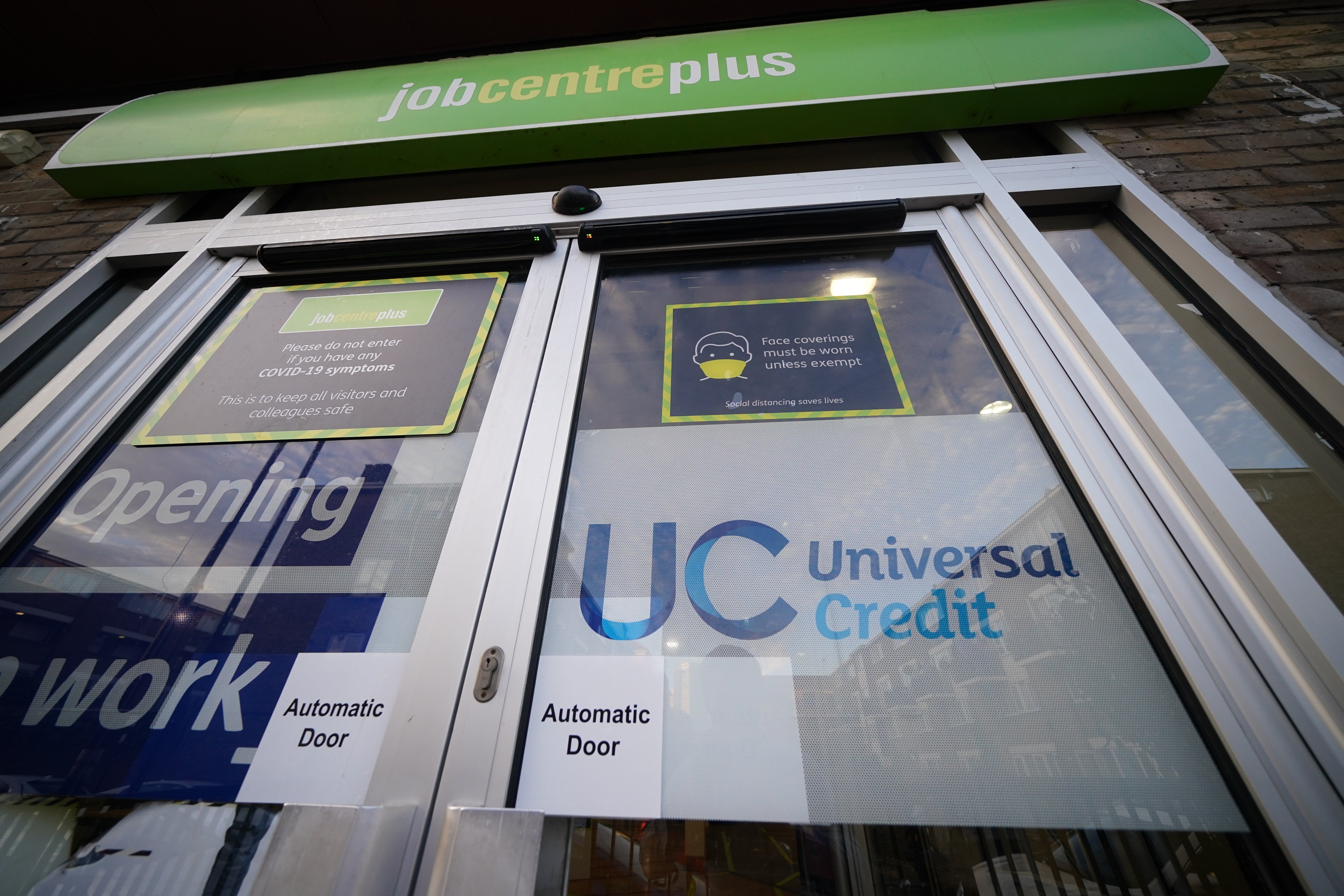UC uplift will not be brought back to help with cost of living, says minister
The Government is looking at a ‘range of options’ to help people through the current pressures, according to Simon Clarke.

Your support helps us to tell the story
From reproductive rights to climate change to Big Tech, The Independent is on the ground when the story is developing. Whether it's investigating the financials of Elon Musk's pro-Trump PAC or producing our latest documentary, 'The A Word', which shines a light on the American women fighting for reproductive rights, we know how important it is to parse out the facts from the messaging.
At such a critical moment in US history, we need reporters on the ground. Your donation allows us to keep sending journalists to speak to both sides of the story.
The Independent is trusted by Americans across the entire political spectrum. And unlike many other quality news outlets, we choose not to lock Americans out of our reporting and analysis with paywalls. We believe quality journalism should be available to everyone, paid for by those who can afford it.
Your support makes all the difference.The rise in Universal Credit seen during the coronavirus pandemic “is not going to return” to help people through the cost-of-living crisis, according to a minister.
There have been calls from Conservatives and the private sector for the £20 weekly increase to be reinstated.
Michael Lewis, chief executive of energy giant E.ON UK, said on Sunday that increasing benefits payments would ease the pressure on those dealing with ballooning energy bills and soaring inflation which is driving up shop prices.
That is not going to return
But Simon Clarke, chief secretary to the Treasury, said ministers will not be returning to the uplift, which was scrapped in the autumn as part of a winding-down of state Covid support.
He told BBC Radio 4’s Today programme: “On that question, we were always explicitly clear that was a temporary response to the pandemic.
“That is not going to return. The question is how we best now look at the next range of solutions to deal with the challenges we’re facing.”
The Treasury minister pointed instead to how Chancellor Rishi Sunak has already lowered the taper rate for Universal Credit – the rate at which benefits start to reduce as a claimant earns money – allowing the lowest earners to keep more of their wages.
“We took decisive action back in December with the change to the taper rate – that is to say the rate at which benefits are withdrawn as people’s earnings rise -, and we cut that from 63p in the pound to 55p in the pound,” he added.
“That’s a tax cut worth an average of £1,000 to two million of the lowest earners in society.”
He described the taper rate action as “precisely the kind of authentic Conservative solution to this question that we want to see” as ministers consider how next to respond to growing household budget pressures.
Meanwhile, Mr Clarke reiterated the Government’s oft-repeated stance that a windfall tax on the “enormous profits” of oil and gas companies cannot be ruled out.
Labour has been urging ministers to introduce the fiscal measure – a policy that is increasingly finding a sympathetic ear on the Conservative benches.
Tory MP and former Treasury minister Jesse Norman, pointing out that former prime minister Margaret Thatcher used windfall taxes during her tenure in No 10, told Today: “A windfall tax justification in part rests on the widespread need that we are going to need to support people, and recognition of that.
“And we’re going to do that, I hope, quite comprehensively, because that’s what’s going to be needed.”
Speaking to LBC about the prospect of a windfall tax, Mr Clarke said it remains an option if oil and gas companies do not invest in securing the future security of domestic energy supplies.
“The sector is realising enormous profits at the moment,” he said.
“If those profits are not directed in a way which is productive for the real economy, then clearly all options are on the table.
“And that’s what we are communicating to the sector – that we obviously want to see this investment, we need to see this investment.
“If it doesn’t happen, then we can’t rule out a windfall tax.”
He told ITV’s Good Morning Britain that the UK Government is “not going to rush into action” but suggested support will be forthcoming given the “severity of the situation”.
“Philosophically, I don’t want to be raising taxes but nor obviously can we ignore the fact that there is a very challenging situation in terms of the cost of energy at the moment that will likely worsen ahead of next winter, and the Government is going to need to take action to address that,” Mr Clarke told BBC Breakfast.